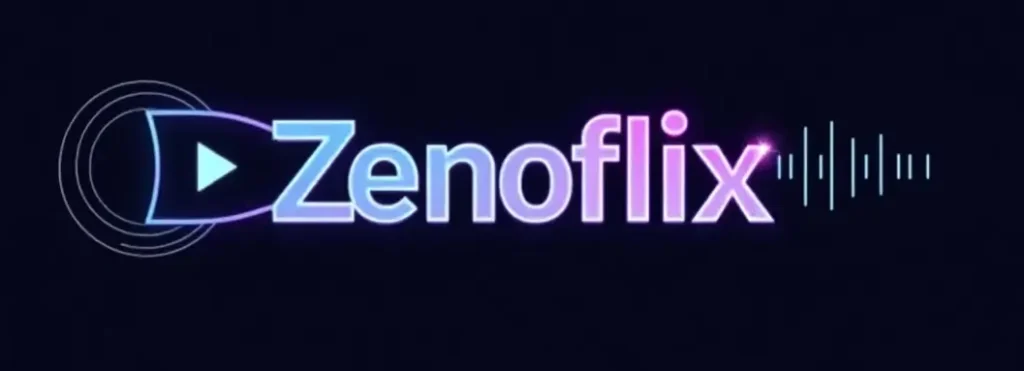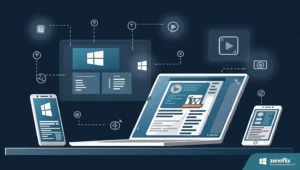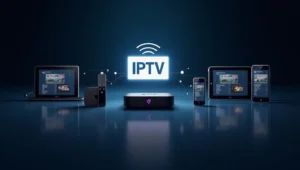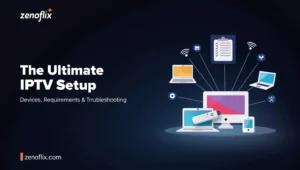In today’s digital age, television has evolved far beyond traditional cable and satellite services. Internet Protocol Television (IPTV) represents the cutting edge of content delivery, offering viewers unprecedented flexibility and choice. Whether you’re curious about this technology or considering making the switch, this comprehensive guide will explain everything you need to know about IPTV systems, services, and equipment.
What Is IPTV?
IPTV (Internet Protocol Television) is a digital television broadcasting method that delivers television content over Internet Protocol (IP) networks instead of through traditional terrestrial, satellite, or cable television formats. Unlike conventional TV that broadcasts content simultaneously to all viewers, IPTV offers a personalized, on-demand viewing experience delivered directly through your internet connection.
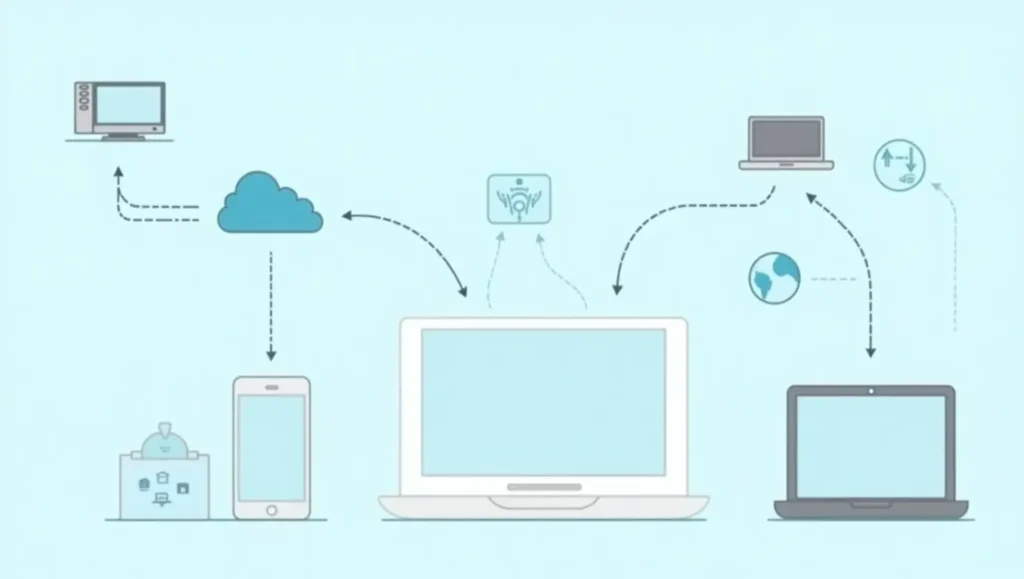
This technology transforms how we consume media by using the same networking principles that power websites and online services. IPTV converts television signals into data packets that travel across IP networks to reach viewers’ screens, whether on a smart TV, computer, tablet, or smartphone.
What Does IPTV Stand For?
Breaking down the acronym:
- I – Internet
- P – Protocol
- T – Television
- V – Video
The term specifically refers to the delivery method (Internet Protocol) rather than the content itself, distinguishing it from other delivery methods such as over-the-air broadcasting or traditional cable systems.
How Does IPTV Work?
IPTV operates through a sophisticated yet streamlined process:
- Content Acquisition: Television content is first collected from various sources (broadcasters, production companies, etc.).
- Transcoding: The content is then compressed and converted into digital formats compatible with IP transmission.
- Storage and Management: Content is stored on dedicated servers, organized into catalogs, and prepared for streaming.
- Content Delivery Network: A robust network of servers distributes the content efficiently across geographical locations.
- User Interface: Viewers access content through apps or specialized devices with intuitive interfaces.
- Streaming: When a viewer selects content, the system delivers it as data packets through their internet connection.
Unlike traditional broadcasting that sends all channels simultaneously, IPTV only sends the specific content requested by the user, making it significantly more bandwidth-efficient.
What Is an IPTV Service?
An IPTV service is a provider that offers television content over the internet using IP technology. These services typically offer:
- Live TV: Stream regular television channels in real-time
- Video-on-Demand (VOD): Access movies and shows whenever you want
- Time-Shifted Media: Catch up on recently aired content
- Interactive Features: Enhanced program guides, search functionality, and personalized recommendations
IPTV services may be offered by telecommunications companies, dedicated streaming providers, or as complementary services from existing TV networks expanding into digital delivery.
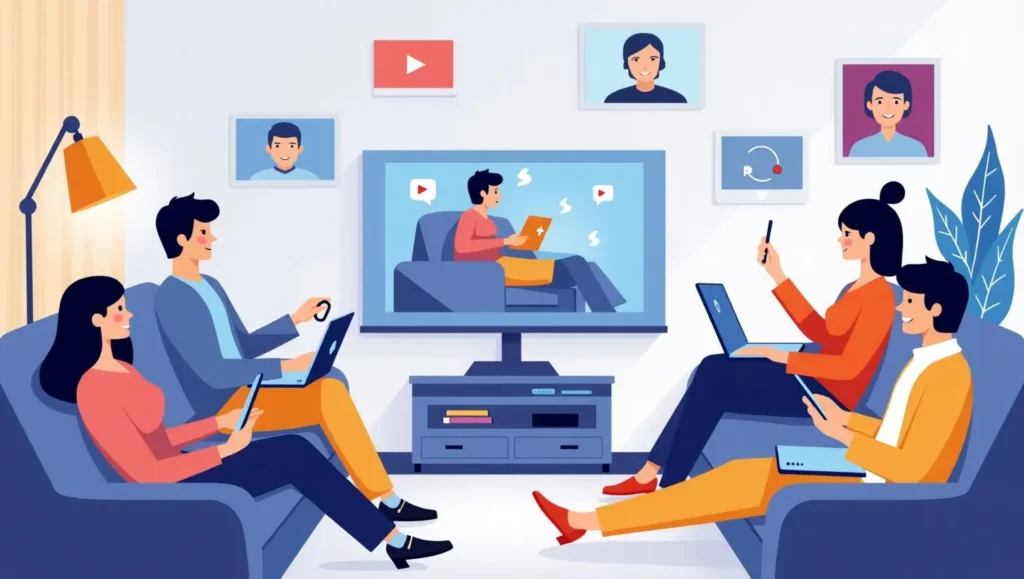
What Is IPTV Used For?
IPTV serves multiple purposes in our increasingly connected world:
- Home Entertainment: Providing television and movie content to households
- Business Applications: Delivering specialized content to commercial establishments like hotels, restaurants, and waiting rooms
- Educational Settings: Distributing instructional content across campuses
- Healthcare Facilities: Offering entertainment and information in patient rooms
- Corporate Communications: Facilitating internal broadcasts, training, and announcements
- Digital Signage: Powering informational displays in public spaces
The versatility of IPTV technology makes it suitable for virtually any scenario where visual content needs to be distributed over a network.
What Is an IPTV Box?
An IPTV box (sometimes called a set-top box) is a dedicated device that connects to your television and internet connection to receive and decode IPTV signals. These devices:
- Convert digital signals into content viewable on your TV
- Run specialized software for navigating IPTV services
- Often include features like DVR functionality, apps, and games
- May support additional features like voice control or screen mirroring
Modern IPTV boxes range from basic streaming devices to sophisticated mini-computers capable of running various applications and services beyond just television.
What Is IPTV VLAN?
IPTV VLAN (Virtual Local Area Network) refers to a network configuration specifically designed to optimize IPTV performance. In networking environments:
- A VLAN creates a separate logical network within a physical network
- IPTV VLANs isolate television traffic from other data traffic
- This separation ensures consistent quality by giving priority to video streams
- It reduces latency and prevents buffering by protecting bandwidth for IPTV content
For home users with advanced routers, configuring an IPTV VLAN can significantly improve viewing experience, especially in households with multiple internet-connected devices competing for bandwidth.
How to Access IPTV Services
There are several ways to access IPTV content:
- Smart TVs: Many modern televisions have built-in IPTV capabilities
- Dedicated IPTV Boxes: Purpose-built devices designed specifically for IPTV
- Media Streaming Devices: General-purpose streamers like Apple TV, Roku, or Fire TV
- Computers and Mobile Devices: Apps and websites that provide IPTV content
- Gaming Consoles: Many support IPTV apps and services
The best method depends on your existing equipment, technical comfort level, and specific service requirements.
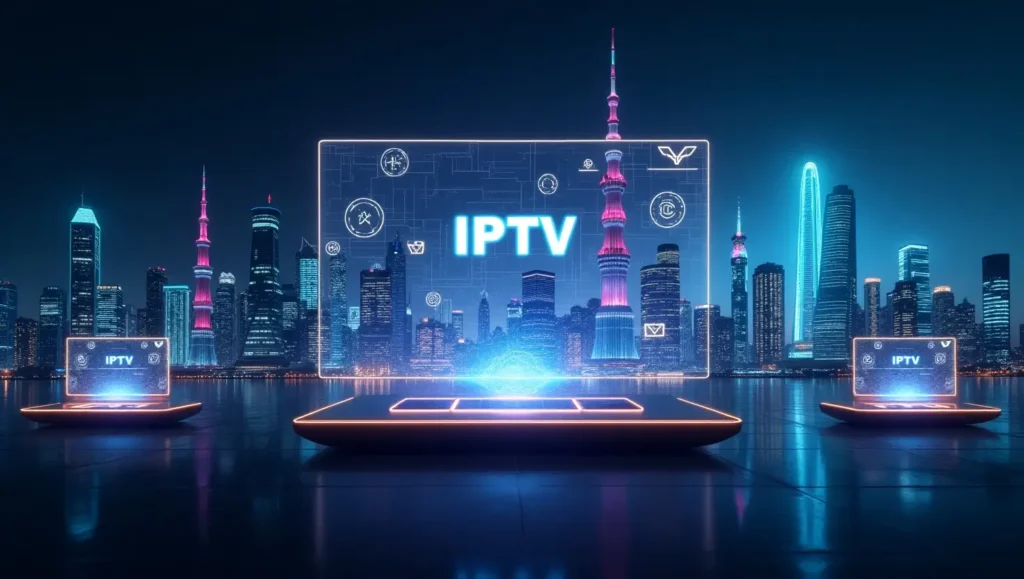
Benefits of IPTV Over Traditional Television
IPTV offers several advantages compared to conventional television services:
- On-demand viewing: Watch what you want, when you want
- Multi-device accessibility: Enjoy content across different screens
- Interactive features: Enhanced program guides and content discovery
- Integration capabilities: Combine with other smart home and internet services
- Cost efficiency: Often more affordable than comprehensive cable packages
- Customization: Select only the content packages you actually want
These benefits make IPTV particularly attractive to viewers seeking more control over their entertainment experience.
Common IPTV Challenges
While IPTV offers many advantages, users should be aware of potential challenges:
- Internet dependency: Requires reliable, high-speed internet connection
- Bandwidth requirements: High-quality streams consume substantial data
- Potential latency: Live content may experience slight delays compared to broadcast
- Technical setup: May require some configuration knowledge
- Service reliability: Quality can vary between providers
Most of these challenges can be addressed with proper planning and equipment selection.
Frequently Asked Questions
Do I need special equipment to use IPTV?
While specialized IPTV boxes offer the best experience, many smart TVs, computers, and streaming devices can access IPTV services with appropriate apps.
How much internet speed do I need for IPTV?
For standard definition content, at least 3-4 Mbps is recommended. HD content requires 5-10 Mbps, while 4K streaming needs 25+ Mbps for smooth playback.
Can I record shows with IPTV?
Many IPTV services offer cloud DVR features, while some IPTV boxes include local recording capabilities.
Is IPTV legal?
Licensed IPTV services that properly secure content rights are completely legal. However, some unauthorized services exist that redistribute content without proper licensing.
Can I watch local channels through IPTV?
Many legitimate IPTV services include local channels in their packages, especially those offered by telecommunications companies.
How does IPTV differ from regular streaming services?
While both use internet protocols, IPTV typically offers more comprehensive television experiences including live channels, while streaming services focus primarily on on-demand content libraries.
What router settings are important for IPTV?
Quality of Service (QoS) settings that prioritize video traffic, IGMP snooping, and proper VLAN configuration can significantly improve IPTV performance.
As technology continues to evolve, IPTV represents the future of television consumption, offering unprecedented flexibility and personalization. Whether you’re looking to supplement existing TV services or completely replace traditional cable, understanding IPTV fundamentals ensures you can make informed decisions about your entertainment options.
